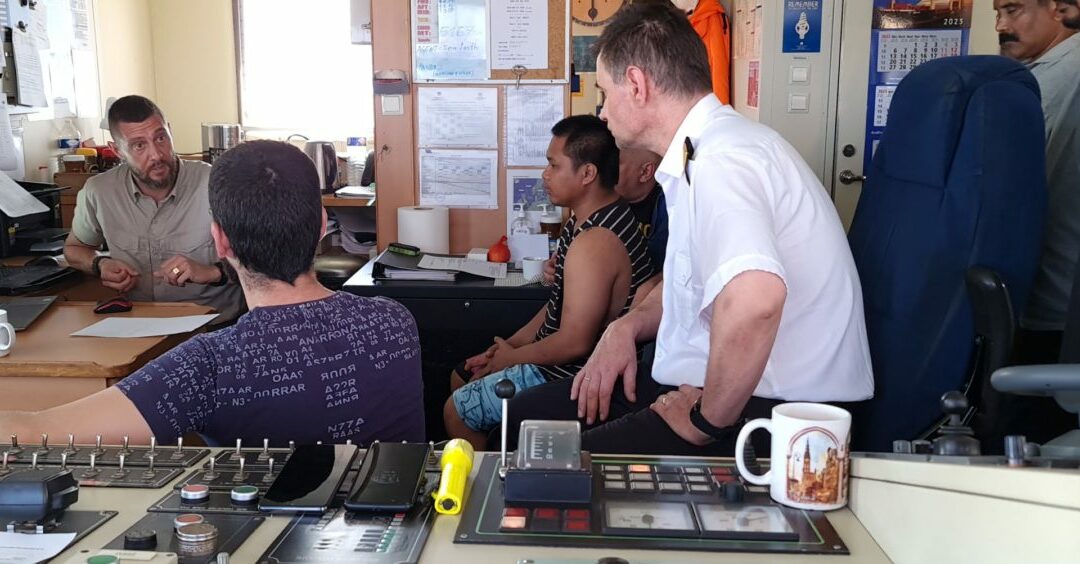Although latest developments regarding international legal framework have brought a new scenario in which international navies are not allowed to operate inside Somali Territorial Waters, the protection of WFP vessels remains a crucial part of Operation Atalanta’s mandate. Monitoring and timely information-sharing with WFP vessels inside Somali TTW is ever more important, as the EU Operation ATALANTA can either coordinate or serve as a critical link to potential first responders.
Moreover, the abolition of the High-Risk Area (HRA) in the Indian Ocean raises new concerns regarding the safe and efficient deployment of Privately Contracted Armed Security Personnel in the future.
To address the above uncertainties/shortfalls, the EU funded project CRIMARIO II is offering IORIS, a neutral and secure information exchange tool, to enhance connectivity between the WFP vessels and Operation ATALANTA Joint Operation Centre, with the Maritime Security Centre Horn of Africa (MSCHOA) fully integrated. Through this process, WFP chartered vessels will be incorporated into specific IORIS Community Areas, administered by Operation ATALANTA to enhance monitoring, and improve incident response procedures 24/7. IORIS will consequently provide WFP vessels and ATALANTA with a reliable platform to share information (from Protection Plans to Industry Releasable Threat Assessments or Bulletins), sailing recommendations, and escort instructions when available, among other possible key information.
Since CRIMARIO II’s proposal to enable IORIS on board the time-chartered vessel has been very welcomed by WFP, ATALANTA and the company, a CRIMARIO training team has just provided a tailored-training session to the vessel MSM Dolores during a stopover in Mombasa and will develop a Standard Operating Procedure (SOP) to support the WFP – ATALANTA operation.
This clearly gives testimony of the EU’s commitment to delivering humanitarian aid to Somalia through the WFP, as well as safeguarding the lives of seafarers.
To conclude, IORIS now in operation in over 20 Indo-Pacific countries, offers maritime operations centres and deployed naval vessels, the possibility to enhance the monitoring of vessels delivering humanitarian aid and vulnerable vessels, advising them about potential threats in the surrounding area that they are transiting through, whilst also allowing them to respond to incidents promptly. It also offers a live link between merchant vessels at sea and safety and security centres.

